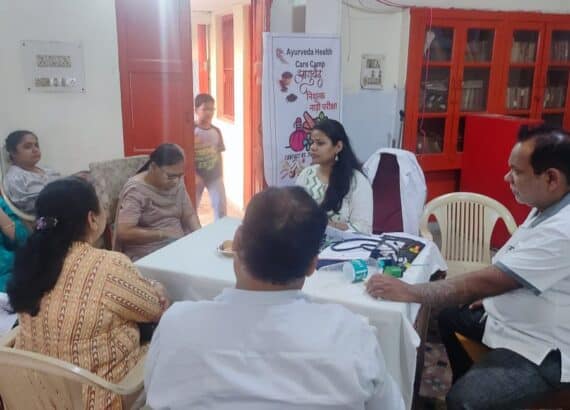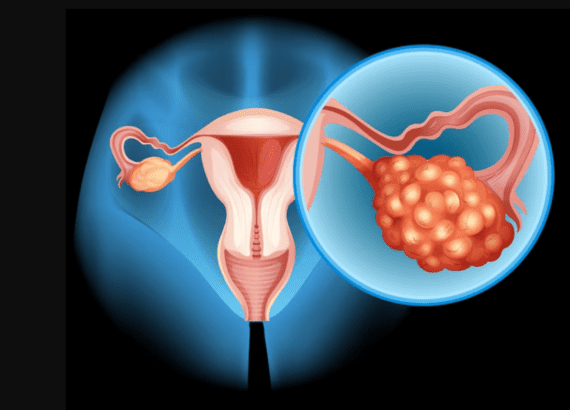Irregular or Absent Periods with PCOS: Understanding PCOS and Its Impact on Menstruation
For many women, the experience of irregular or missed periods can be distressing and unsettling. These irregularities may indicate an underlying health condition known as polycystic ovary syndrome (PCOS).
PCOS affects countless women worldwide, causing hormonal imbalances that disrupt the menstrual cycle and lead to the absence or irregularity of periods, also referred to as amenorrhea and oligomenorrhea, respectively.
In this comprehensive article, we will dive deep into the reasons behind PCOS-related irregular or absent periods, the potential risks and complications associated with this condition, as well as the various treatment options available. So, if you’ve been grappling with irregular menstrual cycles, read on to gain a deeper understanding of PCOS and how to regain control over your reproductive health.
Understanding PCOS and Its Impact on Menstruation:
Polycystic ovary syndrome (PCOS) stands as one of the primary culprits behind irregular or missed periods. This condition is characterized by elevated levels of androgens, which are male hormones that disrupt the development and release of eggs from the ovaries, thereby leading to skipped or absent periods.
Irregular periods, scientifically referred to as irregular menstruation, can stem from various factors such as fluctuations in hormone levels, stress, certain health conditions, medications, and more. A typical menstrual cycle spans anywhere from 21 to 35 days, with an average length of 29 days.
However, hormonal imbalances lie at the core of PCOS and play a significant role in disrupting the normal menstrual cycle. Fluctuations in hormone levels, including elevated androgen levels, can throw off the delicate balance necessary for regular ovulation and menstruation cycle off track. These imbalances contribute to the irregular or absent periods experienced by women with PCOS.
The impact of irregular periods can be far-reaching and extend beyond the inconvenience of a disrupted cycle. Women with PCOS may experience emotional distress, reduced fertility, and an increased risk of long-term health complications, such as diabetes and cardiovascular disease. Therefore, it is crucial to gain a comprehensive understanding of PCOS and its effects to take proactive steps towards managing this condition effectively.
Shedding Light on Medical Conditions and Lifestyle Factors Affecting Periods:
A wide range of medical conditions can contribute to irregular periods. Conditions such as endometriosis, pelvic inflammatory disease, primary ovarian insufficiency, thyroid or pituitary gland disorders, bleeding disorders, uterine cancer, or ovarian cancer can all impact the regularity of menstruation. Moreover, certain lifestyle factors can also exert a significant influence on menstrual cycles. Factors like stress, fluctuations in weight, intense exercise routines resulting in low body fat, viral infections, and other illnesses can disrupt the delicate hormonal balance, leading to irregular periods.
It’s important to note that medication usage, complications during pregnancy or breastfeeding, and certain surgeries or blockages in the reproductive system can also contribute to irregular periods. Being aware of these factors and their potential impact on menstruation can help women recognize when it is time to seek medical advice and intervention.
Diagnosis and Treatment of Irregular Periods:
Diagnosing the underlying cause of irregular periods requires the expertise of healthcare providers who specialize in women’s reproductive health. These professionals may inquire about menstrual cycles, conduct physical examinations including pelvic exams, and order specific tests such as pelvic ultrasounds, endometrial biopsies, or hysteroscopies to identify the root cause.
The treatment for irregular periods hinges on addressing the underlying cause responsible for this condition. Healthcare professionals may recommend various interventions tailored to the individual needs of each woman. Treatment options can range from hormonal birth control to regulate the menstrual cycle and control hormone imbalances to medications that target specific conditions like tranexamic acid for heavy bleeding or antibiotics for infections. In some cases, surgical interventions may be necessary to address issues such as uterine fibroids or endometriosis.
In addition to medical interventions, adopting self-care practices can greatly contribute to restoring balance to the menstrual cycle. Incorporating healthy lifestyle choices, stress reduction techniques, regular exercise, proper contraceptive use, and regular check-ups with gynecologists and primary care providers can all play a crucial role in promoting a balanced and healthy menstrual cycle.
Light Periods and Seeking Medical Attention:
It is essential to differentiate between light periods, which indicate shorter duration and lighter flow, and potential underlying health conditions. While a typical menstrual cycle occurs every 21 to 35 days, lasting for two to seven days, individual variations exist. Factors such as age, weight, pregnancy, breastfeeding, birth control methods, stress, overexercising, eating disorders, and PCOS can all contribute to light periods. However, it is important to seek medical attention if experiencing persistent or troubling symptoms such as painful or irregular periods, heavy bleeding, foul-smelling vaginal discharge, prolonged periods, bleeding or spotting between periods or after menopause, significant changes in menstrual regularity, or symptoms of toxic shock syndrome.
Identifying Risk Factors and Seeking Professional Guidance:
Risk factors for light periods can affect women of any age, and it is crucial to consult a doctor to identify the underlying cause. If you miss three consecutive periods, suspect pregnancy, experience irregular periods, encounter bleeding between periods, endure pain during menstruation, or notice any other concerning symptoms, visiting a healthcare provider is recommended. The appropriate treatment for light periods depends on the underlying cause, which may involve lifestyle changes, medication, or other interventions. Seeking professional guidance can provide valuable insights and support in managing light periods and promoting overall reproductive health.
Take Control of Your Menstrual Health with Hermones:
Managing irregular or absent menstruation due to PCOS can be challenging, but with the support of Hermones, you can take steps towards achieving hormonal balance and restoring regular menstrual cycles. By addressing the underlying hormonal imbalances, Hermones offers a natural and holistic solution to support women with PCOS in their journey towards improved menstrual health.
Hermones is available for purchase both in-store and on Amazon, providing accessibility and convenience. With its natural ingredients and commitment to quality, Hermones offers a safe and effective approach to support women with PCOS in regulating their menstrual cycles and achieving better hormonal balance.
Conclusion:
Understanding the complexities of PCOS and its impact on menstruation empowers women to take control of their reproductive health. By recognizing the potential causes of irregular or absent periods, seeking medical advice when necessary, and implementing appropriate treatment and self-care practices, women can regain balance and lead fulfilling lives free from the constraints of irregular periods.
In addition to these strategies, incorporating Hermones into your PCOS management plan can provide valuable support in achieving hormonal balance and restoring regular menstrual cycles. Hermones, a natural nutraceutical supplement, is specifically designed to address the hormonal imbalances associated with PCOS and promote menstrual health. By targeting key hormones such as insulin, testosterone, and progesterone, Hermones works to restore hormonal equilibrium, alleviate PCOS symptoms, and promote menstrual regularity.
Remember, open communication with healthcare professionals and regular check-ups are key to ensuring accurate diagnosis, tailored treatment plans, and long-term reproductive well-being. By embracing the journey towards a harmonious menstrual cycle and incorporating solutions like Hermones, women can enjoy the benefits of a healthy and vibrant life.
Take charge of your reproductive health, stay informed, and embrace the possibilities of a balanced menstrual cycle. By understanding your body, seeking professional guidance, and exploring suitable interventions such as Hermones, you can navigate the challenges of PCOS and achieve a renewed sense of well-being.



